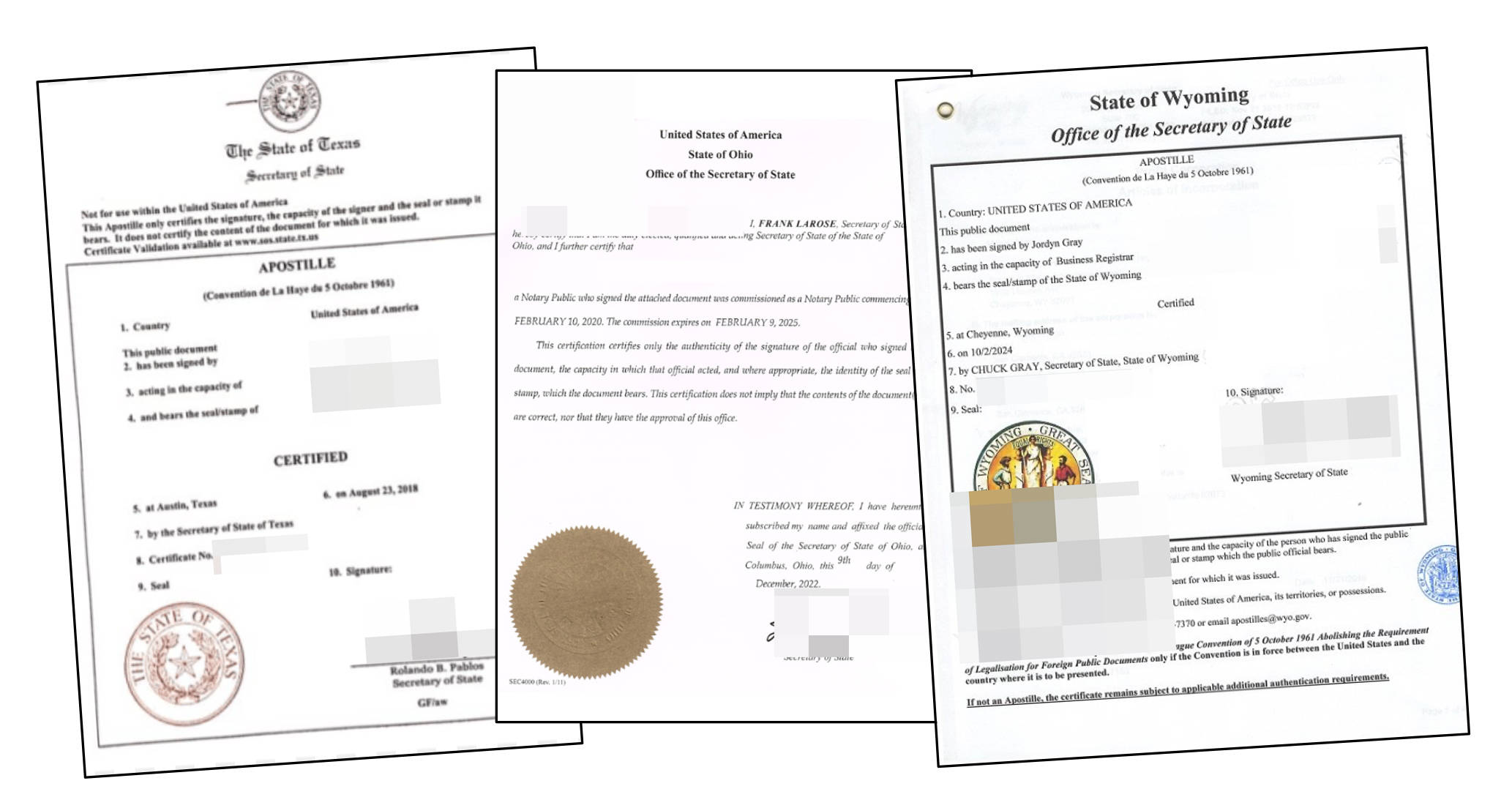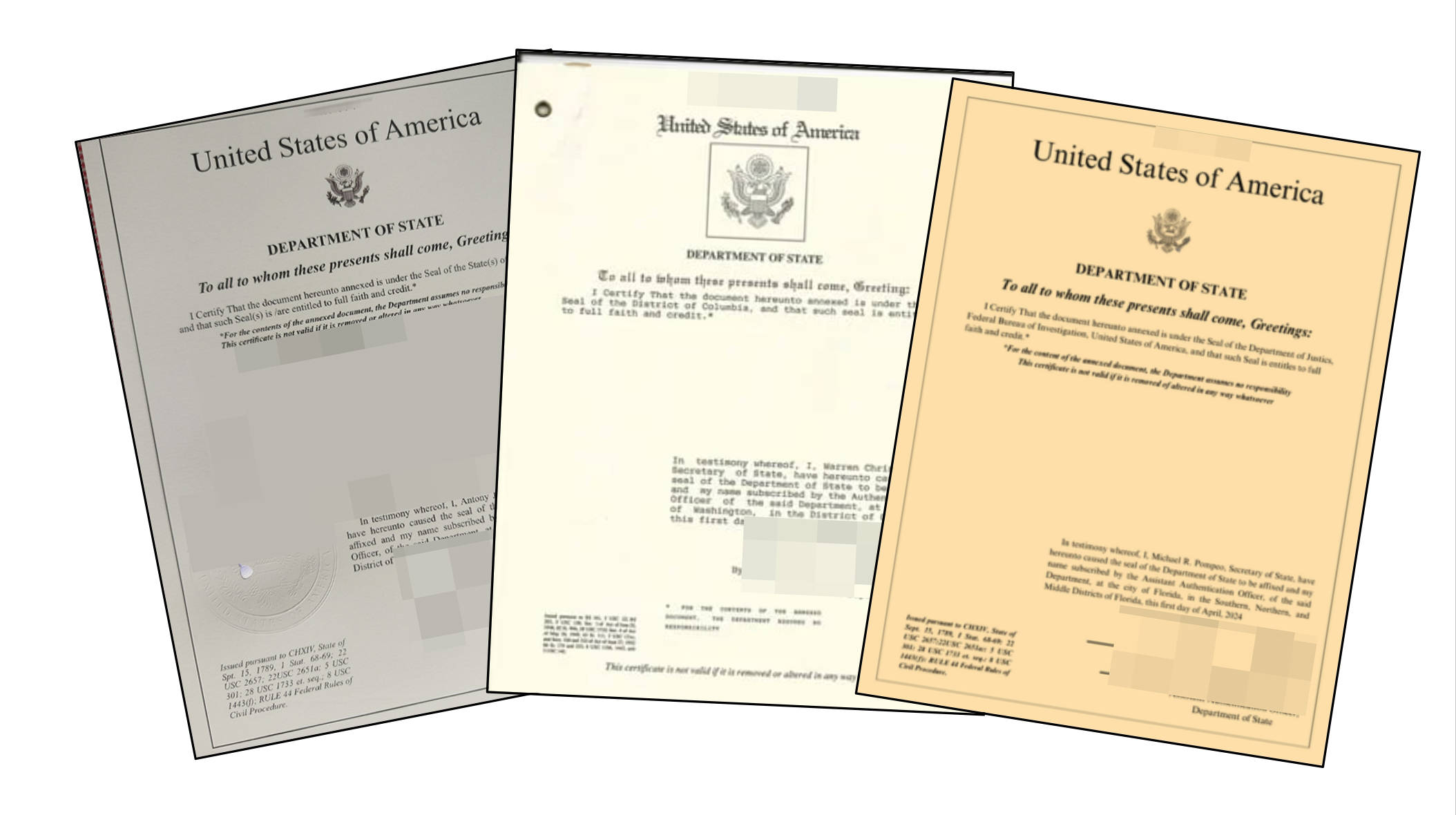Apostille for U.S. passport, consular authentication

What Is a U.S. Passport?
Holding a U.S. passport means you can travel the world as an American citizen with ease. More than just a travel document, it is a key that unlocks international doors. Whether you’re traveling for business, studying abroad, or visiting family, a U.S. passport allows you to move freely in and out of the country at different stages of life. It represents identity, trust, and global recognition, providing security and support wherever you go.
U.S. Passport Case
A person who has lived in the United States for a long time holds a U.S. passport issued by the federal government. However, the authentication process for various official U.S. documents can sometimes be quite complex. For example, although this passport is issued by the U.S. government, it is specifically authorized and processed in Washington, D.C.
Washington, D.C., while not a state, is a special administrative region and the center of the federal government. A passport is technically a federal document and is not directly tied to any particular state. However, in practice, people often mention the place of issuance or the issuing authority to confirm the document’s authenticity and credibility.
Why Does This Client Need an Apostille for Their U.S. Passport?To answer this, we need to consider an important background factor—on March 8, 2023, China officially joined the Convention Abolishing the Requirement of Legalization for Foreign Public Documents (commonly known as the Hague Apostille Convention).
After the convention took effect in China on November 7, 2023, certain official documents from the U.S. can be directly recognized in China once they go through the appropriate U.S. apostille process. This eliminates the need for the previously complex consular legalization process, saving a significant amount of time and effort.
You Might Wonder: What’s the Use of a U.S. Passport in China?Actually, there are many uses. For example, if someone in China needs to apply for immigration, obtain long-term residency, invest in a business, transfer property ownership, notarize a marriage, or enroll their child in school, they may need to use their U.S. passport as proof of identity and citizenship.
To verify the authenticity and authority of such documents, Chinese authorities require them to go through an internationally recognized certification process. After China joined the Hague Convention, this process became the apostille. With an apostille, China’s judicial departments, government agencies, schools, banks, and other institutions will recognize the passport’s legal validity and authenticity.
This Client’s Situation Was a Typical CaseThey were in China and needed to handle some administrative and legal matters that required using their U.S. passport as an identity document. However, China used to have very strict requirements for foreign documents, often requiring consular or embassy authentication—a time-consuming and cumbersome process.
Now, thanks to the Hague Apostille, which serves as a globally recognized “official endorsement,” the client simply needs to have their passport apostilled by a professional agency in the U.S. and then sent back to China. Chinese authorities can then accept it directly. This greatly simplifies the process, improves recognition, and speeds up the overall procedure.
Why Did the Client Choose the “Washington, D.C. Notary Office” for the Apostille?In the U.S., different types of documents require different notary and authentication agencies. Washington, D.C. has many experienced institutions and notaries who specialize in international document authentication. They are well-versed in the Hague Apostille process, ensuring that documents are properly notarized before being submitted to the Secretary of State’s office or relevant federal departments for certification.
If a document is intended for use in China, now that the Hague Convention is in effect, an apostille is all that’s needed. This simplifies what was once a complicated international authentication process, making it faster and more convenient for the client to use their U.S. passport in China.
Why Delegating to the “Washington, D.C. Notary Office” Was a Smart Choice?By entrusting the Washington, D.C. Notary Office with the process, the client handed over the entire complex authentication procedure to professionals. They didn’t have to figure it out on their own, make multiple trips, or worry about miscommunication or missing documents.
Once the U.S. passport was apostilled and sent back to China, it gained officially recognized legal validity there. With this certified passport, the client could smoothly complete various legal and administrative matters in China, such as company registration, property transactions, marriage registration, school enrollment for children, or any other procedures requiring identity verification.
In Simple Terms: A Hassle-Free Solution.Originally, the client might have been worried about how to get their U.S. passport recognized in China. Now, with a Hague Apostille, the process is easily resolved. This approach aligns with international practices and follows China’s policy of simplifying foreign document authentication after joining the convention.
For the client, this is a time-saving, cost-effective, and stress-free solution.
We share this case to help others better understand the process and its practical applications. Please note: Any company names or personal names mentioned in this explanation are purely fictional. Any resemblance to real entities or individuals is purely coincidental. This case serves as a reference to provide a framework for understanding and decision-making. When applying this information, please carefully consider your own situation and, if necessary, seek professional advice or further verification.
What Is a U.S. Apostille?
When you need to use an official U.S. document internationally—such as a passport copy, marriage certificate, or diploma—you often require a certified verification that is recognized by foreign governments and institutions. This is where the Apostille comes in.
By obtaining an apostille in the U.S., your document can be quickly and unconditionally accepted in countries and regions that are part of the Hague Convention. Simply put, an apostille acts like a globally recognized “trust seal” for your U.S. document, eliminating complicated procedures and making cross-border matters much smoother.
What Is U.S. Consular Authentication?
If the destination country is not a member of the Hague Convention, then U.S. consular authentication is required to ensure the document’s legality and validity. This process is more rigorous and complex than an apostille.
It involves several steps: first, the document must go through notarization and state-level authentication in the U.S. Next, it must be verified by a federal agency before finally being authenticated at a U.S. embassy or consulate in the destination country.
Although this process takes more steps, consular authentication ensures that your document is internationally recognized, even in non-Hague countries. This helps eliminate legal barriers and uncertainties, whether for personal matters or business expansion.
Washington, D.C. Notary Office – Your Trusted Authentication Service Provider
Navigating complex international authentication processes can be overwhelming, especially when dealing with foreign legal requirements. But don’t worry—Washington, D.C. Notary Office is here to support you every step of the way.
With extensive experience and a professional team, we handle everything from initial notarization to final authentication on your behalf. Whether you’re in the U.S. or abroad, we offer customized, efficient, and hassle-free solutions to ensure your documents are recognized in your target country.
Choose us, and let international authentication be a smooth and worry-free process. We help you move forward with confidence, seamlessly connecting you with the world.
Apostille Sample

Authentication Sample
